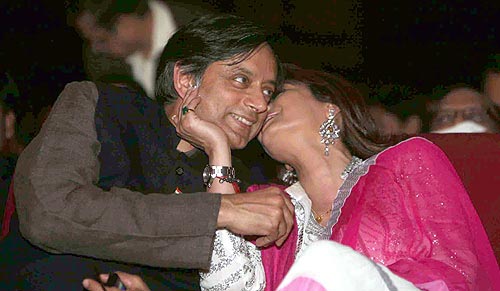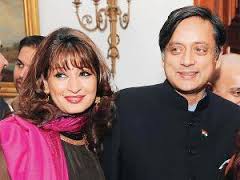
New Delhi, Jan 18: Union Minister Shashi Tharoor's wife Sunanda Pushkar, who died Friday night, had "injury marks" on her body and it is a "case of unnatural, sudden death", one of the doctors who conducted the autopsy said.
"On post mortem examination we can say that it is a case of unnatural sudden death. There were certain injury marks on the body but we can't divulge details at this point," said Sudhir Kumar Gupta, a doctor.
"We will conclude our report and opinion in a couple of days," he added.
Sunanda Pushkar was found dead under mysterious circumstances in her room at The Leela Palace hotel in south Delhi Friday.
Her death came barely 24 hours after she and Shashi Tharoor declared they were "happily married" following public airing of tweets that hinted at an extra-marital relationship and alleged involvement of a Pakistani woman.

Doctors led by G. Vijayaraghavan told reporters Saturday that all the details of Pushkar's illness were given to them.
"As is the practise, we are unable to share the details of her illness with the media," said Vijayaraghavan.
To a question, he said that she, however, did not have any grave illness.
Sunanda Pushkar was found dead under mysterious circumstances in her room at The Leela Palace hotel in south Delhi Friday.
Her death came barely 24 hours after the two declared they were "happily married" following public airing of tweets that hinted at an extra-marital relationship and alleged involvement of a Pakistani woman.
When Sunanda Pushkar was admitted, the Tharoors' looked cheerful and happy, said an official.
E.M. Najeeb, executive director of KIMS Hospital, where she was admitted Jan 12, told IANS that he met the two on numerous occasions in the three days that she was in hospital.
"On 12th night, their friend from Delhi was staying with her at the hospital and the next day Tharoor spent the night with her. On the 14th, she was discharged and doctors had asked her to come back later," said Najeeb.





Comments
Add new comment